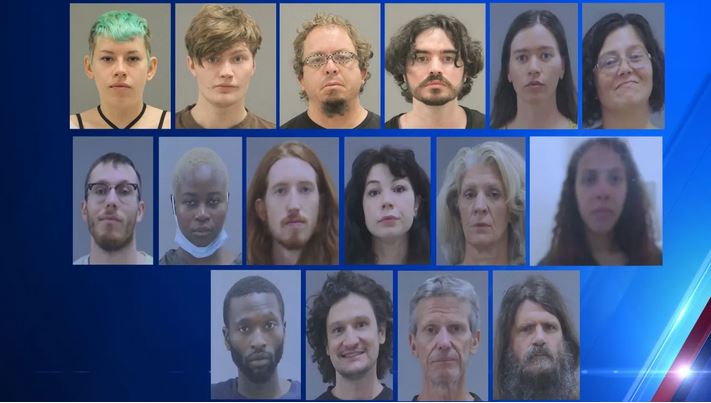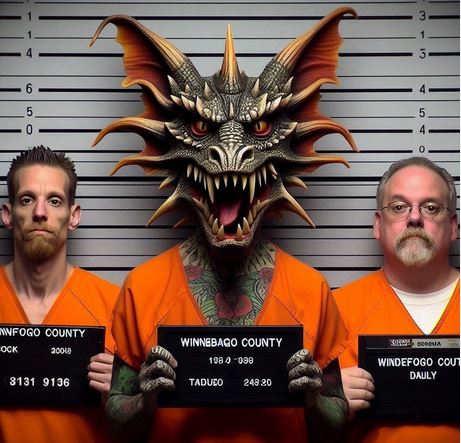Introduction to Rockford IL Mugshots
Rockford, Illinois, a city known for its rich history and vibrant culture, has a hidden side that often goes unnoticed. It’s the darker world of mugshots—those stark images capturing moments of legal trouble. For many, Rockford IL mugshots represent more than just photographs; they symbolize public humiliation and lifelong stigma. While these snapshots might seem like mere records to some, they carry weighty implications for individuals and communities alike.
As we delve into this topic, we’ll explore the complexities surrounding mugshot websites and how they affect those caught in their web. From personal stories to broader societal impacts, it’s time to shine a light on an issue that deserves our attention and understanding. What lies behind these seemingly innocent images? Let’s uncover the truth together.
The Controversy Surrounding Mugshot Websites
Mugshot websites have stirred significant controversy across the nation, and Rockford IL is no exception. These platforms often collect and display arrest photos without consent. Many argue this practice violates individuals’ privacy rights.
Critics highlight that mugshots can linger online indefinitely, impacting jobs and personal lives long after charges are dropped or cases are dismissed. This creates a digital scarlet letter for many who may not even be guilty.
Moreover, some mugshot sites operate on a pay-to-remove model. Individuals desperate to clear their names find themselves in a troubling predicament—paying fees to erase information that should never have been publicized in the first place.
As these issues gain more attention, communities grapple with the balance between public safety and individual rights. The conversation about ethical practices surrounding mugshot publishing continues to evolve as more voices join the fray.
Impact on Individuals and Communities
The impact of Rockford IL mugshots extends beyond the individuals depicted. For many, a single arrest can lead to lasting repercussions. Families bear the burden as well, facing stigma and judgment from their peers.
Communities often suffer too. A focus on negative narratives can overshadow positive stories and achievements within neighborhoods. This creates an environment filled with fear and mistrust.
People lose job opportunities or housing because of publicly available mugshots, regardless of guilt or innocence. The ripple effect is profound—employers may be quick to judge without knowing the full story.
Moreover, social media amplifies this issue, where images spread rapidly and permanently affect reputations. Such online shaming adds layers of anxiety for those already grappling with legal troubles or past mistakes.
In essence, these mugshot portrayals distort realities while affecting countless lives in unforeseen ways.

Legal Issues and Challenges
Legal issues surrounding Rockford IL mugshots are complex and often contentious. Many argue that the publication of these images can violate individuals’ rights to privacy, especially when charges are dropped or cases dismissed.
There’s also the question of whether mugshot websites operate within legal boundaries. Some sites charge hefty fees for removal, leading critics to label them as extortionate practices. Victims of this system struggle with reputational damage long after their encounters with law enforcement.
Additionally, local governments grapple with how to regulate these platforms effectively. Laws vary widely across states, creating a patchwork landscape where accountability is inconsistent.
As people advocate for reform, legal challenges continue to emerge in an effort to protect those unjustly affected by public exposure through mugshots.
Alternatives to Traditional Mugshot Websites
As public awareness grows, alternatives to traditional mugshot websites are emerging. These options focus on rehabilitation rather than shaming.
One approach is the use of expungement services. They help individuals clear their records legally, removing negative online content about past arrests. This empowers people to start afresh without the weight of old accusations hanging over them.
Social media platforms also provide a space for positive storytelling. Individuals can share personal narratives that highlight growth and change, painting a more accurate picture beyond just criminal history.
Community organizations play a crucial role too. They often offer programs aimed at reintegrating formerly incarcerated individuals into society while promoting understanding among residents.
These alternative methods foster an environment where accountability and support take precedence over stigma and shame, encouraging healing rather than judgment in Rockford IL communities.
Personal Stories and Perspectives
Behind the stark lines of Rockford IL mugshots, there are real people with stories that often go unheard. For many, a single mistake can define their lives in ways unimaginable.
Take Sarah, for example. A night out turned into an arrest for a minor offense. The mugshot circulated online quickly transformed her life into fodder for gossip and ridicule. She lost friends and faced judgment from strangers.
Then there’s Marcus, who was wrongfully accused but still found his image plastered across several websites. The emotional toll weighed heavily on him as he fought to clear his name while grappling with public perception.
These narratives reveal how easily one moment shapes futures. They remind us that behind each image is a person facing consequences far beyond the photo itself—people striving to reclaim their dignity amid harsh scrutiny.
Conclusion:
Rockford IL mugshots represent much more than just a collection of photos. They capture the complexities of justice, the challenges individuals face after an arrest, and the broader implications for communities at large. The controversy surrounding mugshot websites highlights serious ethical concerns about privacy and exploitation.
The impact on those featured in these images can be devastating. Many suffer from job loss, strained relationships, and social stigma long after their cases are resolved. Communities also feel this strain as trust erodes between residents and law enforcement.
